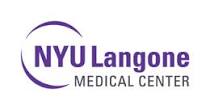C. Difficile and Ursodiol
| Status: | Recruiting |
|---|---|
| Conditions: | Irritable Bowel Syndrome (IBS), Gastrointestinal |
| Therapuetic Areas: | Gastroenterology |
| Healthy: | No |
| Age Range: | 18 - Any |
| Updated: | 4/25/2018 |
| Start Date: | March 1, 2017 |
| End Date: | November 2020 |
| Contact: | Norman Javitt |
| Email: | norman.javitt@nyumc.org |
| Phone: | 212-263-6588 |
A Clinical Trial for the Off Label Use of Ursodiol for the Prevention of Recurrent C. Difficile Colitis and Diarrhea
In vitro findings have established that ursodeoxycholic acid is a surrogate for deoxycholic
acid in preventing the growth of C. difficile, and interrupting recurrence. Investigators
will administer ursodeoxycholic acid for two months, beginning with Metronidazole and/or
Vancomycin (8 to 10 days), antibiotics currently used for the treatment of acute C.Difficile
infection. Ursodeoxycholic acid prevents c.difficile recurrence by (a) directly suppressing
the growth of C. Difficile and (b) permitting restoration of normal fecal bile acid
composition (80% deoxycholic acid) to maintain growth suppression.
acid in preventing the growth of C. difficile, and interrupting recurrence. Investigators
will administer ursodeoxycholic acid for two months, beginning with Metronidazole and/or
Vancomycin (8 to 10 days), antibiotics currently used for the treatment of acute C.Difficile
infection. Ursodeoxycholic acid prevents c.difficile recurrence by (a) directly suppressing
the growth of C. Difficile and (b) permitting restoration of normal fecal bile acid
composition (80% deoxycholic acid) to maintain growth suppression.
The non-investigational reference therapies, Metronidazole, Vancomycin and fidaxomicin , are
FDA-approved antibiotics currently in use today because of their effectiveness in suppressing
the growth of C. difficile and therefore quickly eliminating the colitis and diarrhea.
However, they do not promote the restoration of the normal bacterial flora. Therefore, when
medication is stopped, the C. difficile colitis returns. In vitro findings have established
that ursodeoxycholic acid is a surrogate for deoxycholic acid in preventing the growth of C.
difficile, and interrupting recurrence.
FDA-approved antibiotics currently in use today because of their effectiveness in suppressing
the growth of C. difficile and therefore quickly eliminating the colitis and diarrhea.
However, they do not promote the restoration of the normal bacterial flora. Therefore, when
medication is stopped, the C. difficile colitis returns. In vitro findings have established
that ursodeoxycholic acid is a surrogate for deoxycholic acid in preventing the growth of C.
difficile, and interrupting recurrence.
Inclusion Criteria:
- Male and female patients with recurrent C. difficile colitis
- 18 years of age and older
- Capable of giving informed consent
Exclusion Criteria:
- Patients with other gastrointestinal problems prone to cause diarrhea if they cannot
be controlled for the period of the study. Lactose intolerance or gluten enteropathy
are not an exclusion provide that the potential subject is asymptomatic and can be
expected to adhere to the appropriate dietary regimen.
- Patients with contraindications to metronidazole or vancomycin and/or ursodiol tablets
or components of the formulations.
- Patients not available for long-term follow-up (2 months) by their physician will be
excluded from the study.
We found this trial at
1
site
550 1st Ave
New York, New York 10016
New York, New York 10016
(212) 263-7300

Principal Investigator: Norman Javitt, MD
New York University Langone Medical Center NYU NYU Langone Medical Center, a world-class, patient-centered, integrated,...
Click here to add this to my saved trials